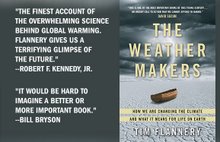Definitions for “social enterprise” vary globally. The definition used by the Social Enterprise Council of Canada (SECC): … “businesses owned by nonprofit organizations,… directly involved in the production and/or selling of goods and services for the blended purpose of generating income and achieving social, cultural, and/or environmental aims.”[3]. Although based in Canada, PacificSci does not meet this restrictive definition as we are not “founded by” a non-profit entity. However, we do fit the more inclusive definition of the Social Enterprise Alliance USA,[4] namely: “Social enterprises are businesses whose primary purpose is the common good. They use the methods and disciplines of business and the power of the marketplace to advance their social, environmental and human justice agendas.” Perhaps the most neutral definition is that of Wikipedia: “…an organization that applies commercial strategies to maximize improvements in human and environmental well-being, rather than maximizing profits for external shareholders. Social enterprises can be structured as a for-profit or non-profit, and may take the form of a co-operative, mutual organization, a disregarded entity, a social business, or a charity organization.”[5]
Now, on our 10th anniversary (December 8, 2013), the scope of PacificSci is mostly in international and global health and development - we know who we are and what we do, and label ourselves accordingly. And as a legally constituted corporation in Canada, we fit most definitions of social enterprise, even if not the dominant one used in Canada.
Background Analysis
Before reviewing the story of PacificSci, we ask readers to revisit the observations below (first shared in our December 2008 blog) regarding conflicts confronting traditional organizations:
• Private companies have always had to balance between achieving the largest possible profits for their shareholders and retaining trust and contact with their other stakeholders: the local community, consumers, sub-contractors, pressure groups, etc.
• The public sector for years now has faced enormous political pressure in favour of privatization of a wide range of functions - and then being forced to 'repurchase' the very same functions and institutions when private companies no longer find them profitable.
• Voluntary organizations: fierce competition among voluntary organizations along with tight state financing has led to organizations experimenting with their independent income - the sale of services and new products. (For examples of this, visit the Social Enterprise Council of Canada website, already referenced below). However, pitfalls exist as certain activities and financial priorities can be at variance with an organization's main goals and mission.
Regarding the private sector, the recent and ongoing world financial crisis amply demonstrates that some firms are perceived as “too big to fail”, despite incompetent and unethical leadership e.g., the US bailing out its once mighty banking industry. Clearly, western industrialized nations are capitalist when going up, and socialist going down!
Equally, it is increasingly clear that neither public nor voluntary sector organizations truly operate in the “pure” manner traditionally implied. Increasingly public enterprises compete with the private sector, while the voluntary sector has become more commercially oriented.
For example, many voluntary not-for-profit organizations today operate with a fully funded core staff, supplemented by contract income, thus building handsome “working capital funds”, while remaining eligible for government grants. In effect, such non-governmental organizations or NGOs (once mostly charitable organizations) have actually become a good “business model” with a competitive advantage over other types of organization.
In the meantime, many public sector (government) entities have become so hollowed out that they must hire private contractors to deliver the expertise that actually belongs with their public mandate. In addition to consulting firms, much of that expertise (sometimes hidden) is obtained from universities, themselves having become “hybrid” organizations. Even publicly funded universities now engage in industry partnerships while receiving government financing, and simultaneously contracting out services to government. See Menard, cited below.
In this complex scenario, where the traditional rules separating organizational forms are increasingly less applicable (if not broken), the emergence of hybrid/fourth sector/social enterprises is virtually inevitable, breaking with earlier concepts of relationships between the state, private and voluntary sectors.
Operating outside the world of grants, yet within the economic boundaries of surviving as a business, the bottom line for our company is nonetheless one of social purpose: in many ways we are participating in a modern renaissance of motivation to improve the human condition.
Note: A further development of this discussion can be found presented in our recent book Global Public Health-Ecological Foundations, published by Oxford University Press.[6]
With this backdrop we now update the short story of PacificSci as a fourth sector organization.
Feature Story – TENTH ANNIVERSARY OF PacificSci
Pacific Health & Development Sciences Inc. (PacificSci), was incorporated ten years ago, on December 8th, 2003, as a health systems consulting firm, with the mission of “seeking solutions to health and social impacts of economic development”.
As a joint venture of principals Franklin White (FW) and Debra Nanan (DN), currently President and Vice-President respectively, PacificSci was conceived primarily as a vehicle for our continued involvement in the field of public health, within which we had accumulated some 50 (now 70) years of combined professional expertise and experience. With FW having worked outside Canada for the previous 15 years, and DN then a new resident of Canada, it was clear that one way to promote and sustain involvement at appropriate levels of philosophy and responsibility was to establish our own entity.
The act of incorporation was carried out without professional legal assistance, using a simple “how to” guide. Within the first year, we were listed on various public sector registries in Canada, and launched our first website, subsequently upgraded in 2007 using SiteCube.com. In 2006, "PacificSci" was approved as our registered trademark. See http://www.pacificsci.org/
Since incorporation, PacificSci has engaged in a blend of contractual and pro bono activities, mostly with an international focus, and with an expanding domestic portfolio. Without attempting to be fully comprehensive, the following is a selection from our portfolio.
International Development-related Contracts
Contractual work is the primary source of corporate income. We have been successful in attracting both international and domestic assignments which reflect our social mission, while committing to the same level of rigour and professionalism as previously applied to our former substantive careers in both academia and government service.
Currently(2013-14), PacificSci serves as the designated health systems expert with Universalia Management Group (Ottawa, Montreal) in an evaluation of research grant influence on external policy decisions, on behalf of the International Development Research Centre (IDRC Ottawa).
In 2010 and again in 2013, PacificSci accepted subcontracts from Universalia as Internal Advisor for quality control in consecutive management evaluations of the World Health Organization (WHO) on behalf of the Multilateral Organisation Performance Assessment Network (MOPAN), comprising 17 donor countries with the common interest of assessing the effectiveness of organizations they fund (Australia, Austria, Belgium, Canada, Denmark, Finland, France, Germany, Ireland, the Netherlands, Norway, South Korea, Spain, Sweden, Switzerland, UK and USA).
In 2009, PacificSci performed a Performance Review for the ICDDR,B (International Centre for Diarrhoeal Disease Research, Bangladesh) for 6 donor nations (Australia, Canada, Netherlands, Sweden, Switzerland, and the UK).
From 2005 through to 2010, PacificSci engaged in Health Project Monitoring in Pakistan: In 2004 PacificSci had participated with Universalia Management Group to bid for this Canadian International Development Agency (CIDA) role. During this period we conducted M&E tasks in relation to four CIDA-supported initiatives:
- Family Planning Association of Pakistan (FPAP)
- HIV/AIDS Surveillance Project (HASP)
- Systems-Oriented Health Investment Programme (SOHIP)
- Lady Health Workers Programme (LHWP)
Notes:
PacificSci’s task
in relation to the LHWP was to provide external review service to Oxford Policy
Management (OPM), which had a lead role in this evaluation. In 2006, we reviewed
a World Bank (WB) evaluation of a primary health care initiative in Pakistan. Both efforts were acknowledged by these
partners: OPM and the WB respectively.
In 2005, we were contracted by Sweden’s International Development Cooperation Agency (SIDA) to represent them in a joint donor evaluation of the African Medical Research Foundation (AMREF). From October 2005 this entailed site visits to headquarters and field operations in Kenya, Uganda and Tanzania; the assignment was completed in March 2006.
NOTE: Links to several of these projects are supplied on our website: http://www.pacificsci.org/
Domestic Contracts
Domestic contracts have also been a source of revenue compatible with our mission, the most significant of which have been:
. University of Victoria, School of Public Health and Social Policy: In late 2012, the firm contracted to develop a new on-line course entitled Foundations of International and Global health and Human Development, for delivery at both senior undergraduate and graduate levels. In Spring of 2013, we then accepted a contract to deliver the course.
. Royal Roads University, Centre for Health Leadership & Research (CHLR): From April – September 2008 Nanan, PacificSci, contracted to support CHLR research. In July 2007, both principals delivered a review of process evaluation for population health initiatives. In Sept 2006, White co-developed with Graham Dickson, CHLR a concept paper to support the ActNow-BC initiative, Ministry of Tourism, Sports & the Arts.
. EDS Canada: From December 2005 to February 2006, PacificSci was retained for technical expertise to assist EDS in a response to a federal-provincial Request for Proposals to develop a Pan-Canadian system disease surveillance and management system. Out of 10 bidders, EDS ranked second to IBM Canada, and ruled eligible if IBM did not fulfil contract requirements.
. British Columbia Ministry of Health: in 2004 PacificSci developed the Provincial Health Officer's (PHO) 2003 report. "Every Breath You Take..." This cites ~200 references, original analyses of air quality and morbidity data, and includes the first health impact analysis of 2003 forest fires. It was presented by the PHO to the BC Legislature.
Pro Bono and Academically-Linked Activities
PacificSci has been active in various (mostly honorary and voluntary) roles with: the University of Victoria (UVIC, where both principals are adjunct faculty), Kuwait University (KU), the Aga Khan University (AKU), Dalhousie University (Dal, where one principal (FW) also has an adjunct appointment), Royal Roads University (RRU), the University of Wisconsin (UWisc), Michigan State University (MSU) and others. The roles have included serving as: Advisory Board member (UVIC); advisor, external examiner and reviewer (KU); visiting speaker (UWisc); thesis supervisor and consulting researcher (Dal); co-grantee and collaborative researcher (AKU); and co-author (UMich and others). Again, more details are accessible from our website: www.pacificsci.org
Both principals serve on the board of the on-line publication Global Journal of Medicine and Public Health, and FW, since its launching in 2012, also serves as its (founding) Executive Editor. This journal, based in Kashmir India, is included in the List of Open Access Journals and other indexes, and attracts an international array of contributors.
PacificSci’s activities in this category have also included many hundreds of pro-bono hours in mentoring individuals and groups abroad and in Canada, participating in e-communities and in health policy groups, and peer reviews for scientific journals.
Regarding interactions and connections, we are currently active in Linked-In groups, most actively “The Economist” and “Global Public Health” groups. In 2006 the firm launched this particular blog (PacificSci Global Perspectives) presenting on a monthly basis an independent view on current affairs, emphasizing the determinants of health and social well-being. We were also a Communications Partner for the World Urban Forum (WUF) 2006, Vancouver.
On January 10, 2006, we launched PacificSci GLOBAL HEALTH DATA LINKS [7], a free subsidiary website developed primarily for students of international and global health providing annotated links to the following sources:
. UNDP Human Development
Statistical Reports
. WHO Statistical Information
Systems
. US Census Bureau International
Database
. Population Reference Bureau
Data-Finder
. WHO's Global Health Atlas.
Since incorporation, PacificSci principals have reviewed various scientific and professional articles for the following leading international journals:
Anthropology & Medicine;
Archives Medical Sciences;
Bulletin of the World Health Organization; Canadian Medical Association Journal;
Diabetes/Metabolism Research and Reviews; Evidence-based Complementary and
Alternative Medicine (eCAM); Global Journal of Medicine and Public Health;
Globalization & Health; International Journal of Medicine and Public Health;
International Journal for Quality in Health Care; Journal of Global Infectious
Diseases; Journal of Public Health; Medical Science Monitor; Preventing Chronic
Disease (US Centers for Disease Control and Prevention); Qualitative Health
Research.
Also: We are utilized as a book
proposal reviewer for Oxford University Press (New York).
Since incorporation, as an expression of ongoing commitment to the
population health sciences, PacificSci principals (in addition to
numerous contracted technical reports) have themselves authored or co-authored 34
articles in peer-reviewed journals, 1 book, 2 book contributions, 4 conference
abstracts and 1 on-line video. Franklin White is the senior author of a new
Oxford textbook: White F, Stallones L, Last JHM. Global Public Health – Ecological
Foundations. Oxford University Press.
New York. 2013 (see URL with citation below, which provides more information
about this book). He also served as an Associate Editor and Debra Nanan as a
contributor in: Dictionary of Public Health. JM Last (ed) Oxford University
Press 2007. [Oxford Reference Online Series.] White is also a contributor to Porta M. Editor. Dictionary of
Epidemiology. 5th edition. International Epidemiological
Association. Oxford University Press. 2008. New York. Together, both principals also completed a major book chapter:
White F, Nanan D. International and Global Health. Chap 76. In:
Maxcy-Rosenau-Last, Public Health & Preventive Medicine. 15th Ed.
McGraw Hill 2008. Unlike most other university and government colleagues, who are compensated for similar efforts as part of their job descriptions/academic or service expectations, these contributions are of a pro bono nature. Thus, we are in touch with and maintaing leadership in our field, while developing PacificSci as a fourth sector organization.
NOTE: Links for many of the items noted above are on our website: http://www.pacificsci.org/
Discussion
The most significant discovery in growing our enterprise is the unique and valued contribution to the public good our company delivers, despite working outside the formal system. While much less personally remunerative than a public sector or academic post, this is offset by more “intellectual freedom” along with more control over professional time than persons working for an institution or a health service. Our third party independence, especially in monitoring and evaluation roles, and our ability to “think outside the box”, allows us to speak out and comment on issues as we perceive and understand them, according to our best judgment.
A significant disadvantage however is that, not being part of collective agreements, we must either fund ourselves or be invited as a resource (e.g., to conferences) to access professional development and networking opportunities. Thus, the fourth sector approach demands we deliver on our skills, or go out of business. Happily, as we enter our 11th year, this has not happened.
Conclusion
This has been a brief and candid account of the experience of Pacific Health & Development Sciences Inc., during its first 10 years of operation. During this period, PacificSci, as a “business venture with a social purpose” has succeeded in delivering on its mission: “seeking solutions to health and social impacts of economic development”.
Our “fourth sector” model of social enterprise has facilitated flexibility, so that we, as principals, can make choices we are comfortable with and motivated by professionally. As a cautionary note, this model comes at a relatively late stage in our careers, where financial and family responsibilities have receded. For those seeking professional freedom of choice and who are prepared to weather lean inter-contract periods, we can recommend this approach.
Envoi
We close this special
10th Anniversary issue of PacificSci
Global Perspectives with the eternal words of Nelson Mandela, a giant of a
human being who taught the world so much by example, and left it a better
place.
“…to be free is not merely
to cast off one's chains, but
to live in a way that
respects and enhances the freedom of others."
So, with these
thoughts and memories, we wish our readers near and far a joyous Holiday
Season, and a happy, safe and healthy New Year!
Franklin White & Debra Nanan, Co-Principals,
Pacific Health & Development Sciences Inc.
REFERENCES:
2. Ménard, Claude (2004), ‘The
Economics of Hybrid Organizations’, Journal of Institutional and Theoretical
Economics 160 (3), 345-376. http://www.econ.kobe-u.ac.jp/~yanagawa/Economics_of_Hybrids--JITE-2004.pdf
3. Social Enterprise
Council of Canada website. Accessed
December 15, 2013. http://www.socialenterprisecanada.ca/en/learn/nav/whatisasocialenterprise.html
4. Social Enterprise
(USA) website. Accessed December 16, 2013. https://www.se-alliance.org/
5. Social
enterprise. Wikipedia. Accessed December 15, 2013. http://en.wikipedia.org/wiki/Social_enterprise#Canada
6. New Trends in Organizational Forms
and Functions – Shifting Sands. Chapter 4, pages 81-82 In: White F, Stallones
L, Last JM. Global Public Health – Ecological Foundations. Oxford University
Press. New York 2013. For more information about this book, including its
contents, visit Oxford University Press at:
7. PacificSci GLOBAL
HEALTH DATA LINKS website. Accessed December 16, 2013. http://globalhealthdata.webspawner.com/
ANNOUNCEMENT: With priority for this issue having been given
to the 10th Anniversary of PacificSci, our Year in Review for 2012
will be the selected topic for the first issue of 2014.

























